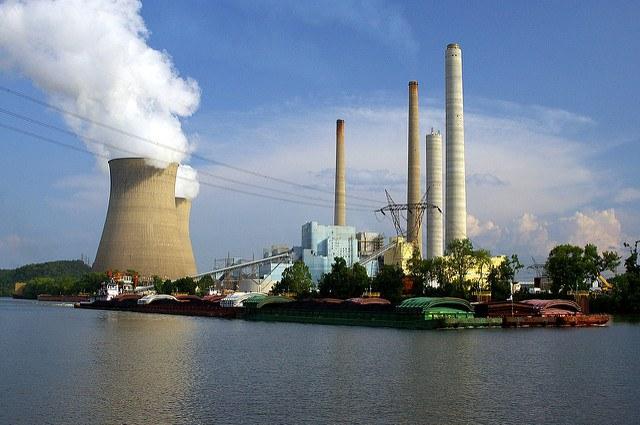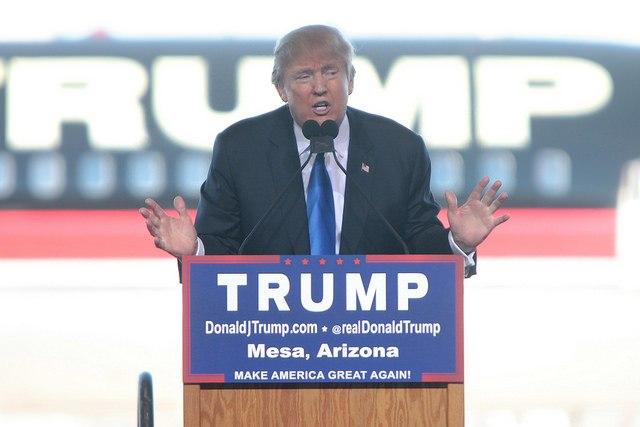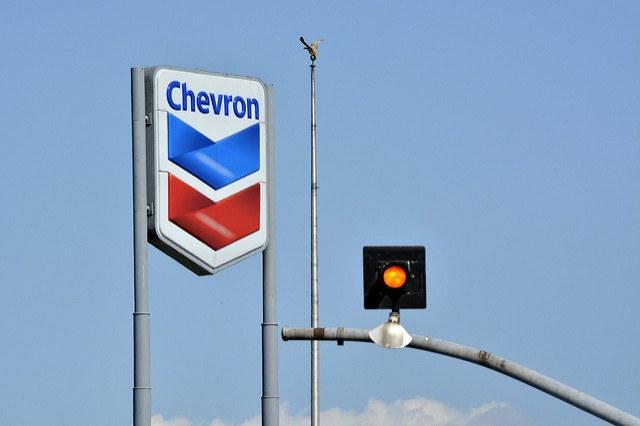Workplace Well-Being: My Grandma Was Right About Health


By Tim State
My grandmother said, “If you don’t have your health, you don’t have anything.” Who could argue?
Health is the backbone of our lives. It enables us to perform at work and enjoy our personal lives. Yet our collective health trajectory today makes one wonder if we’re taking that axiom seriously enough. In recent years we have seen an epidemic of chronic, lifestyle-driven diseases and conditions become a huge part of our nation’s health reality.
Largely behavior-based and preventable, chronic conditions drive most health care costs today. According to the Centers for Disease Control and Prevention (CDC), 86 percent of all health care spending in 2010 was on people with one or more chronic medical conditions. These conditions reduce our healthy days and productivity while increasing suffering and burden. Health care providers have increasingly taken steps to address these chronic health problems and provide the guidance people need to maintain healthy lifestyles.
My grandma was right. And we can do better than this.
Workplace cultures based on health and well-being
A sustainable society requires healthier, thriving people. However, in the U.S., this is unlikely to occur at scale without employers’ direct participation. Why not? American working-age adults on average spend nearly 60 percent of waking hours at work. This provides organizations the potential for profound impact.
Workplace influence could ultimately be more essential to long-term population health progress than employers’ collective sway with stakeholders. In 2013, the U.S. Department of Labor sponsored a study on workplace wellness programs, and found that wellness in the workplace can successfully improve and manage lifestyle factors that negatively impact workers’ health destinies, such as smoking, heart disease, and nutrition.
In this case, what’s good for society is even better for employers. Most organizations these days are boosting employee engagement and productivity, reducing health costs, and inspiring their workforce. Through a sense of community and shared purpose, they are building a culture that elevates health and overall well-being to create a sense of community that drives the employee experience.
What does this look like?
We are social animals. That’s why shared cultural experiences inspire healthier lifestyles and can spark positive change that lasts. For companies interested in building a culture of well-being, a few guiding principles can help them along the way:
- It’s about people above all: A purpose firmly rooted in making a difference in people’s lives is a compass that will not fail. Visible leadership modeling a commitment to values makes this real.
- Embrace well-being holistically: There is a profound interconnection between health (physical and emotional), a sense of purpose, security, and the feeling of belonging. Progress metrics and program resources should reflect this understanding.
- Focus on personalized experiences: Demonstrating care within teams and meeting people where they are will move them.
- Keep it simple: Pay attention to analytics, listen and engage in co-creation with employees to eliminate practical barriers to health – thereby, facilitating an easier path to health.
- Shape health with social influence: As with all community achievements, the health of a team or group tends to move together. Attitudes, habits and outcomes are contagious.
Achieving results
At Humana, our organizational purpose is to help people achieve their best health. We put a stake in the ground to illustrate this commitment. Humana’s Bold Goal aims to make the communities we serve 20 percent healthier by 2020 by making it easier for people to achieve their best health. With our own associates, we’re being even more ambitious by striving to meet the goal by the end of 2017. Our purpose and goal are accompanied by measurable milestones to improve the overall well-being of our people.
We believe we have a duty to encourage our associates to maintain healthy lifestyles and to develop an environment that fosters this way of life. Experiences like our 100 Day Dash, an annual step challenge, encourages associates to get moving and have fun. Since 2012 our wellness and rewards program, and other associate experiences have made a difference:
- Overall number of health risks per person has declined nine percent, with 42 percent eliminating risks and improving their health
- 37 percent went from elevated blood pressure to normal levels, and 26 percent moved their elevated blood glucose to normal range
- More than 100 tons of collective weight loss
- Cut the prevalence of pre-diabetes by 20 percent
- 13 percent improvement in overall well-being, measured by purpose, health, belonging and security
Time to act
At Humana we’ve witnessed first-hand how the synergy of culture and well-being can make a difference for individuals, the company and society. We are still very much on our journey, but the results we have seen in just a few years demonstrate the potential of putting people and their well-being at the heart of all you do.
Humana is not alone. As other organizations make real strides and as the evidence grows, leading businesses and policy organizations realize an important connection between the health and well-being of an organization’s people, and its ability to achieve and sustain business results.
In a study published this year, researchers found that companies winning evidence-based awards for workplace well-being outpaced S&P financial performance by 7 to 16 percent per year. A sustainable workforce requires people who are able to engage fully, weather adversity, build positive relationships, and be fully present to create value. As organizations help build a thriving, healthy U.S. workforce, they’ll be better positioned to deliver for consumers and shareholders in a more sustainable society.
Image credit: Pixabay
Tim State is Humana’s Enterprise Vice-President, Associate Health & Well-being
U.S., Canada, Mexico Make Bold Commitments to 2050 GHG Emissions Reductions


The collective action plan for a president-elect Trump's presidency has already begun. The sense of urgency when it comes to global action on climate change is palpable as global leaders meet in Marrakech this week for the COP22 climate talks. Before last week’s election, there was already the sense more had to be done, as many climate experts agree that last year’s bold COP21 climate agreement still does not accomplish enough to limit the planet’s temperature rise to 2°C.
Add Trump’s upcoming inauguration on January 20, and there is a sense of doom mixed with defiance – one French presidential candidate, Nicolas Sarkozy, warned the U.S. that if it backs out of the COP21 agreement, Europe will respond in kind with a tax on American imports.
To that end, the U.S., Canada and Mexico announced ambitious greenhouse gas reduction targets for 2050. Those plans were preceded earlier in the week by Germany, which was the first country to disclose an emissions reduction agenda for 2050.
“By releasing their mid-century strategies, these countries are adding to the global momentum behind the shift to a zero-carbon future. Countries that do not take a long view risk being left behind,” said Taryn Fransen, Director of the Open Climate Network at the World Resources Institute.
These announcements come as U.S. Secretary of State John Kerry found himself in Marrakesh answering questions of what or may not happen once Donald Trump becomes the country’s president. While much of the world may have a sense of anxiety over what could happen to global cooperation on climate change during a Trump presidency, many analysts argue that such momentum is already underway as much of the world’s private sector is already on board the decarbonization train.
The Obama Administration is still moving on climate change as if nothing had happened. Coinciding with COP22, the White House released a highly detailed plan to the United Nations explaining how the the U.S. can achieve “deep decarbonization” by 2050.
But if the U.S. is going to come near to meeting those goals, the time to start was yesterday. The U.S. targets include slashing emissions in 2050 to 80 percent below 2005 levels. Such a reduction would be the equivalent of eliminating all cars from U.S. roads overnight.
The nation’s energy mix in 34 years would include several scenarios: zero coal consumption; petroleum use limited to approximately 25 percent of 2005 levels; a huge spike in electricity generation from clean technologies such as solar and wind power; and the increased adoption of biofuels. Meanwhile the country would expand its forest cover by as much as 40 to 50 million acres, with an increased focus on preserving and rehabilitating ecosystems such as wetlands.
But it is hard to predict the future, as knowing what technologies can scale, as opposed to what will eventually languish, are unknown. On that point, the U.S. decarbonization report has emphasized research and innovation for technologies that could help the U.S. meet such a massive challenge.
One technology envisioned for a 2050 low-carbon economy is bio-energy with carbon capture and storage, or BECCS, which combines the production of biomass with geologic carbon sequestration. Such a process would involve raising rapidly growing trees or plants such as switchgrass for biofuels, storing that carbon somewhere nearby underground – and then repeating that process again and again. The result, if scaled, would be a technology that its advocates say could actually generate negative emissions.
But If all this sounds like a pipe dream, that is because at the moment BECCS is a pipe dream. Critics say there are risks associated with impinging on arable land, a possible impact on wildlife and the use of aquifers to store these carbon emissions that otherwise could otherwise be restored to secure the world’s water supplies. The White House decarbonization report, however, says its 2050 low-carbon scenario is not depending on BECCS or any other next-generation technology.
Nevertheless, this 2050 plan is a bold step forward for the Obama Administration as it enters its last several weeks. The report is far more aggressive than the Clean Power Plan, which aims to achieve as much as a 28 percent reduction greenhouse gas emissions over the next decade. Many are questioning if any of these plans matter at all, however. In addition to the COP21 treaty, the Clean Power Plan is also in Trump’s crosshairs as he has promised to eliminate these policies and similar agendas enacted during the Obama era.
For those who take climate science seriously, Trump’s reversal of these priorities creates plenty of angst. But considering all the innovation that has emerged the past several years, and the fact that renewables have become cost competitive with fossil fuels, a Trump administration may only slow progress instead of slamming on the breaks. Of course, the long term implications of not moving fast enough to reduce climate change risks offer a scenario that has many citizens concerned about the next U.S. President in the first place.
Image credit: Wigwam Jones/Flickr
Senate Majority Leader from Kentucky: Coal Jobs May Not Come Back


Once a reliable blue state in presidential elections, West Virginia flipped to the Republicans in 2000 and has since become a reliable red state. And last week, West Virginians flocked to Donald Trump, voting for him by over 42 percent– a margin only exceeded in Wyoming.
Much of that margin can be explained by Hillary Clinton’s poorly articulated response to a March town hall question about how she was going to help unemployed coal miners find work. While one can argue that her remarks were twisted out of context, coal workers heard enough, and the damage was done. Appalachia, along with much of the Rust Belt, voted for Trump out of angst over the loss of decent paying jobs. Trump, in turn, has promised that he will stop what he said is the Obama Administration’s “War on Coal.”
But as Senate Majority Leader Mitch McConnell indicated this week, coal companies, including those in his home state of Kentucky, should not feel too ready to cash in after Trump takes office on January 20.
At an event in Louisville last Friday, McConnell brought up what he described as the “assault” launched against coal while Obama has been in office, with one caveat. “Whether that brings business back is hard to tell because [coal] is a private sector activity,” told the Louisville audience.
The truth, however, is that the coal industry’s demise was years in the making. Trump and his allies have pointed to the Obama Administration’s Clean Power Plan as the bogeyman causing the coal industry’s collapse. Coal plants are not necessarily banned under this directive, but new power plants using this fuel must do so with technologies such as carbon capture and storage to minimize their carbon emissions. Several years ago the coal industry ran “clean coal ads” saying this very technology was why coal should be central to the U.S. energy mix, but investors and regulators figured out such projects were far too pricey. The result is that now coal is not competitive enough to compete with other technologies. Companies such as Peabody Energy Corp. said they had their own ideas of what comprised “clean coal,” but regulators ruled those advertisements were misleading.
Trump has always had an uncomfortable relationship with renewables, has his statements on both these technologies and related polices have been all over the map. His allies, however, have long presented the current White House’s energy policies, and their incentives to boost clean energy technologies, as a working-class job killer. Depending on the source cited, however, renewables are providing at best only 11 to 13 percent of America’s energy and electricity needs. And almost half of the renewables portion is electricity generated from hydropower.
Renewables, despite all the hype and enthusiasm, are still a small portion of this country’s energy portfolio. Of course, if one wants to dig the knife deeper into coal’s corpse and add more insult to injury, it does not take much of a web search to see sites like Bloomberg crow about how solar and wind power are becoming cheaper, more scalable and as cost effective as fossil fuels.
But the stubborn fact is that natural gas has slayed coal. Whatever one thinks of the fracking boom here in the U.S., it has not only given utilities a bridge fuel until solar and wind technologies become more integral to the national grid, but it is currently just as cheap or even priced lower than coal. As a result, natural gas has become king across much of the country as utilities, municipalities and states often have their own clean air standards irrespective of what the federal government may or may not do.
Trump’s ascendancy was based largely on bringing back jobs to an economy with a 4.9 percent unemployment rate, but as is the case with manufacturing, such promises will be hard to keep. The private sector has its own idea of what a 21st century economy will look like, and there is not much a President Trump can do. And he is especially hobbled on making this promise a reality as he has offered no concrete proposals, unlike those of his opponent’s tepid, but detailed, plan.
Image credit: Gage Skidmore/Flickr
Thinking (and Acting) Big: Sealed Air’s Sustainability Report


You may not know Sealed Air, but chances are you've used their products often. The makers of Bubble Wrap (TM) and Cryovac food packaging is one of the largest packaging companies in the world. They are also a sustainability leader, with the Carbon Disclosure Project recently adding them to their A List for Climate Disclosure and Performance Leadership.
For Ron Cotterman, Vice President of Sustainability at Sealed Air, this recognition showed him that the company was on the right path.
“That was a huge feather in our cap,” said Cotterman. “It’s not just what we say, but a third party, outside organization that reviews thousands of companies. Really surpassed our expectations.”
In fact, partnerships are key to Sealed Air's efforts, and besides CDP, they work closely with the World Wildlife Fund (WWF) and local non-profits across the world. This makes their work more transparent, but also helps the company understand the wider impact of their operations.
“Having those collaborations really helps us broaden approach to big societal problems,” said Cotterman. For example, while working with WWF, they discovered that their joint project on making the Chinese poultry supply chain more efficient had the benefit of reducing deforestation and preserving biodiversity in the Amazon – as it reduced demand for imported soy feed.
“We were exactly aligned,” said Cotterman. “It was amazing to see how that worked.”
One of the key’s to Sealed Air’s approach is that they are not timid in how they approach big challenges. Go through their latest Sustainability Report, and one thing that immediately becomes aware is that this company, while focused heavily on improving their operations, sees their role as far larger than just what happens within the company. Page after page mentions global challenges such as water scarcity, greenhouse gas emissions, infectious diseases, and connected social impacts.
At first, it may not be apparent what a packaging company has in common with these massive challenges. However, this approach is, in fact, key to truly understanding what sustainability means in a global, interconnected economy. A company’s actions go far beyond their internal operations or the products they produce.
“That taps into the sense of purpose that we have as a corporation,” said Cotterman. “We can take meaningful actions that will have multiplier benefits.”
This means understanding that it's not just about the packaging products the company makes and sells. It is about understanding the role that those products play in the economy, and their overall impacts on sustainability. This has been a meaningful shift in thinking for the company.
“In the past we have focused heavily on product-based orientation,” said Cotterman. “What we’ve been trying to do through our sustainability program is understanding that, while packaging might be an article, or a manufactured item, it is really part of a broader system.”
One key example of how Sealed Air took this approach to tackle broader sustainability issues connect to a topic that we've covered quite a bit here at TriplePundit – food waste. Sealed Air does not produce, or consume, any food, and as a company it would be easy to ignore this issue and focus on those with a direct connection to the company's bottom line. But, according to Cotterman, that is not sustainability.
“Look at how much is being wasted today? We thought: what can we do make sure the food we do produce is done in an effective way? If packaging can be used to prevent food waste, it has a multiplier effect on the total amount of waste that is prevented,” said Cotterman.
By improving the use of efficient packaging, and helping brands better determine portion sizes, Sealed Air is helping make real progress in the fight to reduce food waste, meaning less greenhouse gas emissions from the transport, disposal, and production of waste food. They are just getting started and plan to do much more in this realm until food waste is reduced significantly. Considering that some estimate that 40 percent of food in the United States alone is wasted, and that these account for a large chunk of our greenhouse gas emissions, this can go a long way in helping us get closer to a sustainable economy.
Tackling food waste is just one example of this thinking, and it shows that Sealed Air can, alone, push for big shifts in how industries function on their own. However, they also understand that it won't be enough. Industry-wide action is crucial to bringing out a truly sustainable, circular economy.
“We’ve taken a lead, and hopefully we will help to inform other players across our industry to likewise take on some of those broader challenges,” said Cotterman.
Their sustainability report, with its commitment to partnerships, transparency, and focus on big problems far beyond the company's most obvious impacts, is a worthy read for any corporation looking to make sustainability a part of their DNA.
Photo Credit: Rkit via Pixabay
Boost Your Sustainability Initiative With an Effective Print Strategy


By Dale McIntyre
Sustainability is a hot-button issue, and its importance is only growing. In 2011, just 20 percent of Standard and Poor’s 500 companies published environmental, social, and governance (ESG) reports; by 2013, that figure had risen to 72 percent.
Consumer preference is helping to drive this change. According to Nielsen, brands with a demonstrable commitment to sustainability grew by more than 4 percent globally in 2015, while their competitors grew by less than 1 percent. Moreover, 66 percent of people surveyed agreed they would be willing to pay more for sustainable goods.
One need only look at the backlash against Volkswagen — with sales declining across multiple markets following its 2015 emissions scandal — to see how damaging it can be to neglect or fake this commitment. In today’s market, accurate and detailed information on sustainability is no longer a competitive advantage; it’s a business essential.
It has other advantages, too. A McKinsey survey found that more than 90 percent of executives saw risk management as one of the primary triggers of their sustainability initiatives, with soaring commodity prices being a particular concern.
But while many companies have adopted eye-catching green initiatives, one of the simplest environmental and cost-saving solutions can be found closer to home: reducing office printing volume.
Facing our printing addiction
A company that employs 2,000 people will use enough paper to eliminate 3,600 trees every year. It would only require the consumption of seven or eight such companies to wipe out all of the trees in New York City’s Central Park. That doesn’t sound like much of a team-building exercise, does it?
Then, there’s the cost of the ink and toner to consider. Producing one laser cartridge requires a gallon of fossil fuel, and 350 million cartridges are thrown out each year. The environmental costs of printing are astronomical, but the costs closer to home are often more surprising.
Most business leaders cannot correctly estimate the number of printing and copying devices around their offices to within 25 percent, and many probably don’t realize they should care to begin with. But with some companies spending 12 percent of their annual revenues on printing — and an average spend between 1 and 3 percent — this is one cost center that demands more attention.
Introduce a print management strategy
The hidden cost of office printing demands attention (but also solutions). Here are five steps that every company can take to improve their overall sustainability and save a lot of money in the process:
1. Dive deep into your data to find trends. As with most business problems, an effective print management strategy requires comprehensive data about the organization’s habits and resources. This data should go beyond the invoice from a managed print services provider, which sometimes accounts for as little as 10 to 15 percent of the total cost of printing.
Businesses must dive deeper to get the full picture. The data will answer several important questions: Who is printing? What are they printing? What applications are they printing from, and why? Print management software makes this process easier by allowing business leaders or IT managers to review how many of those documents are essential for business.
2. Define what “necessary” printing entails. Eliminating printing completely is not realistic for most businesses, but it can almost always be reduced. For example, do employees really need to print emails or web pages? You would be surprised how much print volume comes from these sources. By revealing the program that originated a print job, print management software can facilitate proper adherence to your organizational policies and guidelines.
The objective should be to encourage employees to adopt efficient alternatives and eliminate unnecessary printing. After you define the business processes and workflows that may require printed documents, you can encourage monochrome printing instead of color (which can cost as much as 60 cents per page). Small changes like these can add up to big savings.
3. Implement a policy in stages. Trying to overhaul the entire company printing policy all at once could become a major headache — and an uphill battle. It’s a lot easier to phase in changes gradually. Start with areas where immediate savings can be achieved, such as enforcing double-sided, monochrome printing as a standard default device setting.
You could ask employees to reduce their printing by one or two pages per day, and encourage them to think before printing in color. Once people get used to a more thoughtful mindset with regard to their printing habits, it will be much easier to roll out the next stage.
4. Introduce an internal “green” campaign. Don’t just tell employees they have to reduce their printing; launch an internal green campaign to clarify the importance of the initiative. These efforts can focus on cost management, energy conservation, and broader environmental benefits.
Choose a message that fits your company culture, use data to back it up, and educate people about how their actions will help the company achieve its objectives. Illustrating the bigger picture will help to bring employees onboard with what they’ll rightly perceive as a noble cause.
5. Celebrate success. An effective strategy needs more than relentless targets; it will flourish through acknowledgment and celebration of small wins. Share the results of the first three or four months of the policy, breaking them down into cost-savings and page-count savings, and explain what those extra resources mean for the company.
If the company saves enough to invest in new equipment, share that information with employees so they understand how their more mindful printing behaviors contributed to the organization’s success. Regular celebrations of these achievements and milestones will help to improve people’s perceptions of the changes taking place, which can also improve company morale.
Not only do savings of this scale make companies more competitive, they can also improve hiring. In 2015, Millennials became the largest generation in the U.S. workforce; they will comprise around 75 percent of all American workers by 2025.
And what do those young workers want more than anything? A job that matches their ethical and environmental values.
Print management might not seem like a sexy or even consequential issue, but in reality, the right print strategy can do wonders for a business by cutting costs dramatically, engaging Millennial employees, and helping to build a positive, team-oriented atmosphere. Even the joggers in Central Park will be grateful for it.
Dale McIntyre serves as a vice president at Pharos Systems International, an enterprise print solutions provider based in Rochester, New York. Dale provides strategic leadership in the areas of sustainability, brand, and customer engagement. He regularly shares his unique sustainability perspective on print strategy through blogs, webinars, and appearances.
Twitter Chat Follow-Up: Mondelēz International on Women’s Empowerment in Cocoa Communities


Editor’s Note: This post is a follow-up to TriplePundit’s recent #Women4Cocoa Twitter Chat with Mondelēz International, CARE International and Oxfam. In case you missed it, you can catch a recap here.
By Cathy Pieters (@CathyPieters), Cocoa Life Program Director, Mondelēz International
It is well-documented that women can be powerful change agents for themselves, their families and communities. This is increasingly seen in a range of sectors – including cocoa. Women are central to the well-being and sustainability of cocoa-growing communities and supply chain. To drive awareness around the critical role women play, Mondelēz International (@MDLZ) teamed up with CARE International (@careinuk), Oxfam (@OxfamAmerica) and TriplePundit for a Twitter Chat on November 3, 2016, discussing key challenges and issues faced by women, as well as ongoing efforts and best practices to strengthen women’s empowerment.
Our chat discussed the importance of partnership and collaborative programs, like Mondelēz International’s Cocoa Life, to transform the lives of women in cocoa communities. Cocoa Life is the global snack company’s holistic, third-party verified cocoa sustainability program. Mondelēz International partners with third-party organizations, like CARE, to assess and evaluate Cocoa Life’s efforts, focusing on women’s empowerment. Oxfam also provides guidance to Mondelēz International on best practices for addressing gender equality in the cocoa sector.
As a follow-up to the Twitter Chat, Cathy Pieters (@CathyPieters), Cocoa Life Program Director, shared further insights into Cocoa Life’s evolving approach and answered additional audience questions.
Q1: What is Cocoa Life and how is it working to improve the lives of women in cocoa communities?
Cathy Pieters: As the Director of Cocoa Life since 2012, I’ve seen firsthand the positive impact the program is having on cocoa farmers, including women farmers and their families. It’s the most satisfying aspect of my work.
On a recent trip to Côte d’Ivoire, one of the cocoa-growing origins where our program is based, I met women cocoa farmers from a Community Development Committee. They excitedly shared how the committee raised awareness and drove efforts to get more local girls into school. As a result, girls who had never attended school before were now doing so. Cocoa Life and our local partners provided an opportunity for these women to identify issues that mattered to them and work together to address them in their community.
In addition to firsthand stories like this, CARE recently published a new assessment of Cocoa Life’s women’s empowerment efforts across our five focus areas (farming, community, livelihoods, youth and environment) in Ghana and Côte d’Ivoire. It found Cocoa Life:
- Increased cocoa yields from giving women better access to training in Good Agricultural Practices
- Improved financial literacy and resilience as well as increased household income, which is used to invest in agricultural inputs, hire labor and fund school tuition fees – as a result, it helps tackle one of the root causes of child labor, access to education
- Drove more active participation from women in community-level decision-making bodies, such as the Community Development Committees and Community Action Planning process
- Implemented a women extension volunteers program, instrumental in promoting access to finance, community mobilization and Good Agricultural Practices
Based on recommendations from this report, we’re expanding Cocoa Life’s strategy for women’s empowerment by scaling up Cocoa Life’s interventions and implementing new actions to amplify women’s empowerment across the program and ensure women have agency in every aspect of their lives.
Q2 from @MiniFund: What kinds of economic growth are we seeing for women specifically in cocoa through your programs? #Women4Cocoa
Cathy Pieters: Women’s economic empowerment and gender equality are, first and foremost, basic human rights. Empowering women is not only the right thing to do – it’s also the smart thing to do for development, economic growth and business.
As mentioned above, the recent CARE International assessment found Cocoa Life increased cocoa yields by improving women’s access to farmer training and increased household incomes by improving women’s access to finance in Ghana and Côte d’Ivoire. This is important, as women’s economic empowerment enables greater agency and choice for women and boosts investment in children. Oxfam noted in a report “when women have control over their own income or family earnings, they reinvest in their families, children and communities, increasing the well-being and the sustainability of cocoa-growing communities.”
In our 2015 Progress Report, Janet Opare-Addo, a Cocoa Life Women’s Extension Volunteer, discussed how she works supporting 570 men and women in community development projects in communities throughout Ghana. This includes leading two Village Savings and Loans Associations (VSLA). Janet shared that due to these trainings, women are empowered with the knowledge and skills to manage their cocoa farms and can access loans to help pay for labor. She has seen this translate into earning more money and increased confidence in women’s abilities as cocoa farmers.
Altogether, this creates a sustainable approach: when cocoa farms are thriving, communities are strong, women are empowered, children are educated and the next generation is inspired to stay in cocoa farming.
Q3 from @CourtGarrity: How does #CocoaLife encourage sustainable farming practices? #Women4Cocoa
Cathy Pieters: Cocoa Life helps farmers improve yields, invest in their farms, grow small businesses and earn higher incomes via the application of good agricultural practices. These are combined with better access to demonstration parcels and the distribution of improved planting material. Through Cocoa Life, farmers are able to expand their knowledge about new farming techniques and learn to master good agricultural practices.
We also focus on inspiring young adults to pursue cocoa farming in their own communities. By increasing access for youth to learn life skills, such as leadership development, financial literacy and business principles, we can empower them to build sustainable farming communities.
Read more about Cocoa Life’s farming efforts in this piece by Amadou Ouattara, a 52-year-old cocoa farmer and member of ECAM, a large cooperative of more than 900 farmers participating in the Cocoa Life program in Côte d'Ivoire.
Q4 from @Context_Group: How do you measure KPIs [key performance indicators] that influence Cocoa Life e.g. ecosystem maintenance & female advocacy? Do you know any specific numerical evaluations that are used? Is there somewhere I can find that information? #Women4Cocoa
Cathy Pieters: We work with independent evaluators to verify and measure Cocoa Life’s impact, with oversight from external advisers. The verification consists of an annual outcome assessment and three-yearly evaluations of our impact on cocoa farming communities against our 10 global key performance indicators (KPIs), which correspond to the program’s five focus areas. Our KPIs focus on women’s empowerment and disaggregate data by gender.
More information about Cocoa Life’s measurement and verification is available on the Cocoa Life website, 2015 Progress Report and CARE International assessment.
Twitter Chat Recap: Yum! Brands on Food Waste


TriplePundit and the experts at Yum! Brands discussed today how one of the world’s largest restaurant companies is focused on waste reduction in its stores and in the larger restaurant industry. We heard from panelists Roger McClendon, Yum! Chief Sustainability Officer, on Yum!’s overall waste efforts and its food donation program, Harvest; the Food Waste Reduction Alliance, an industry collaboration, on how food companies like Yum! are tackling food waste; and Food Donation Connection, Yum!’s non-for-profit partner, on how they work with Yum! franchisees to reduce hunger and food waste.
With nearly 43,000 KFC, Pizza Hut and Taco Bell restaurants in 135 countries and territories, Yum! acknowledges its responsibility to being a good steward of the environment and is focused on reducing the amount of waste generated by its business operations. Learn more about Yum!’s waste reduction efforts.
Synopsis available here:
Future generations prepare for work with DP World Education Programme


Value chain approach: a focus on food waste


Fossil Fuel Companies Enjoy Unprecedented Access to Climate Talks


Climate talks kicked off in Marrakech, Morocco on November 7. Delegations of international leaders, organizations and advisers will hammer out how to implement the global climate agreement signed last year in Paris. Fossil fuel companies are involved in a way that The Guardian calls “unprecedented.” The involvement of fossil fuel companies through the trade associations is a conflict of interest because the primary interest of the companies is extracting and burning fossil fuels, something there will inevitably need to be less of in the years to come.
There is another problem with involving fossil fuel companies. They have funded climate change denial. Back in 2011, an analysis by Carbon Brief found that nine out of ten of the authors of over 900 papers that cast doubt on climate change had some sort of relationship with the oil giant ExxonMobil. That is the same company that is in hot water legally for failing to warn investors and the public about the dangers of climate change despite knowing about them in the 1970s. The Guardian reports that ExxonMobil, along with representatives from other fossil fuel companies, will have “unquestioned access to most discussions in Marrakech, will be called upon for advice and will be walking the corridors and holding private discussions with countries that are trying to move the world to stop consuming the products those companies have based their businesses on.”
“Industries responsible for climate change must not be entrusted to solve it,” Kelle Louaillier, President of Corporate Accountability International, wrote in an opinion piece. According to Louaillier, the only way to “implement truly groundbreaking measures” like renewable energy projects “owned and operated by communities” is by removing fossil fuel companies “from the equation.”
Corporate Accountability International released an infographic one week before the climate talks in Marrakech. What it revealed is both the extent of the fossil fuel industry’s access to the talks and their influence over them. Take the World Coal Association, which is an accredited observer at the climate talks. The organization represents some of the largest coal corporations in the world including Peabody Energy, BHP Billiton and Rio Tinto. Trade associations such as the Business Council of Australia and BusinessEurope have members like ExxonMobil, BP, and Royal Dutch Shell. BusinessEurope has a long history of opposing European Union climate legislation. The trade association opposed the EU carbon tax in the 1990s and has tried to tone down the EU Emissions Trading Scheme. According to the organization Influence Map, the climate positions of BusinessEurope are “not aligned with most of its constituents” and it is “more obstructive than sectors most concerned about ambitious climate policy.”
The Competitive Enterprise Institute (CEI) is another trade association which is an accredited observer at the climate talks. The organization, founded in 1984, states on its website that it “questions global warming alarmism.” One of its top funders is ExxonMobil, which has contributed “at least $2.1 million since 1997,” according to DeSmogBlog. The Director of CEI’s Center for Energy and Environment is Myron Ebell, who is a climate change denier. (He's also been shortlisted to head the EPA in president-elect Trump's administration).
Countries representing nearly 70 percent of the world’s population called for the UN Framework Convention on Climate Change (UNFCCC) to identify and address conflicts of interest that may come up between environmental objectives and the interests of certain sectors like fossil fuel groups. The group of countries is called the Like Minded Group of Developing Countries (LMDC). Created at the Bonn Climate Change Conference in May 2012, it is a coalition of 24 countries, that includes several Arab countries, India, China, several emerging Asian economies and countries from the Caribbean and South America.
The UNFCCC chose to not listen to the concerns of the LMDC.
Some of the countries represented by the LMDC will be hit particularly hard by climate change impacts. Caribbean nations are a good example. As the Caribbean Climate Change Project (CCCP) points out, island nations “stand to feel the full brunt of climate change impacts.” One of those impacts is sea level rise. Take the Bahamas. According to the CCCP, sea level rise will cause the Bahamas to experience “considerable land loss” and that will have a negative effect on the tourism industry. Or take Jamaica which will also experience sea level rise that will impact tourism, but will also have its water resources affected by climate change.
Photo: Flickr/swong95765